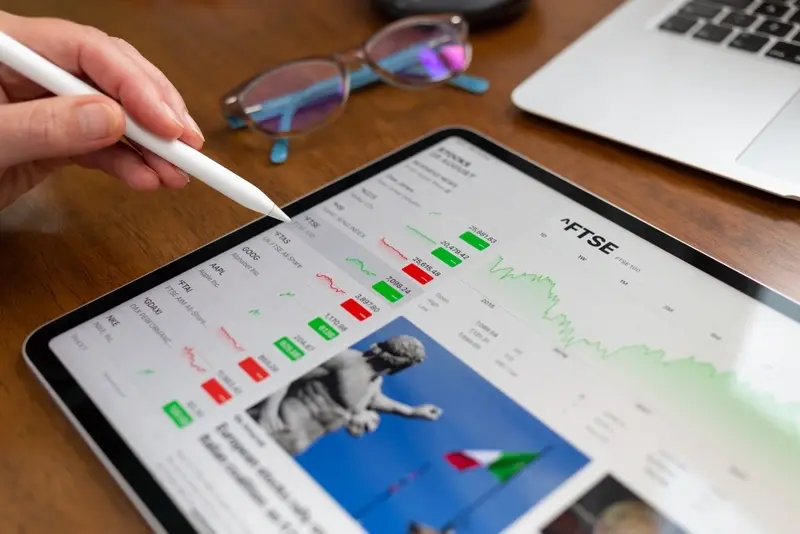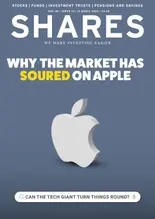
Stocks in London started the third quarter in a jumpy fashion on Friday, ultimately edging into the red as global manufacturing readings disappointed investors and fueled fears of an economic slowdown.
The manufacturing economies in the UK, US and eurozone all slowed in June, figures showed. The latter, meanwhile, saw inflationary pressures intensify once more.
The FTSE 100 index closed down just 0.63 of a point at 7,168.65 on Friday. The index had been 0.5% lower roughly an hour before the closing bell, but managed to recover from afternoon lows before the end of a volatile session.
The FTSE 250 ended down 29.80 points, or 0.2%, at 18,636.98 and the AIM All-Share closed down 1.01 points, 0.1%, at 875.21.
For the week, the FTSE 100 lost 0.6%, the FTSE 250 shed 2.6% and the AIM All-Share fell 2.4%.
The Cboe UK 100 ended down 0.2% at 713.63, the Cboe UK 250 closed down 0.6% at 16,213.00, though the Cboe Small Companies inched up 0.1% to 13,282.95.
In European equities on Friday, the CAC 40 in Paris and DAX 40 in Frankfurt, also seeing a late recovery, ended up 0.2%.
Trading was choppy on Friday.
Europe's blue-chip benchmarks recovered from a sluggish start to climb into the green before the morning ended.
However, they fell into the red in the early afternoon, climbed back into positive territory shortly after the open in New York, but struggled once again as early gains in the US proved fleeting.
Buying action in the final hour of the European session lifted blue-chip benchmarks, however.
At the time of the closing bell in London, US stocks were lower. The Dow Jones Industrial Average was down 0.3%, while the S&P 500 and Nasdaq Composite were each 0.2% lower.
Hurting sentiment on Friday was a trio of poor manufacturing purchasing managers' index readings.
The S&P Global-CIPS UK manufacturing purchasing managers' index fell to 52.8 in June from 54.6 in May and was revised down from an initial estimate of 53.4. It was the lowest reading in two years.
S&P said the slowdown in the UK manufacturing sector continued at the end of the second quarter, as June saw output growth grind to a near-standstill pace and new orders contract for the first time in 17 months.
In addition, S&P said inflationary pressures remained elevated due to raw material shortages, stretched supply chains, higher prices for commodities, electronics, energy, oil, paper, plastics and timber.
Meanwhile, the manufacturing sector in the eurozone had a rough month in June, data from S&P Global showed, as firms faced slowing demand and a drop in new orders.
The S&P Global eurozone manufacturing purchasing managers' index fell to 52.1 in June from 54.6 in May, which represents a 22-month low. Any reading over the no-change mark of 50.0 indicates growth, signalling that June's rate of expansion slowed significantly compared to May.
The pound was quoted at $1.2034 at the time of the London equities close on Friday, down from $1.2157 on Thursday. The euro was priced at $1.0406, down from $1.0456.
The single currency had initially spiked following another red-hot eurozone inflation print, but struggled to maintain that momentum and at one point sunk to $1.0367 - its lowest level in two weeks.
Consumer inflation in the eurozone is expected to tick higher in June, data from the statistical office of the EU showed, piling further pressure on the European Central Bank to rein in spiralling prices.
Euro area annual inflation is expected to be 8.6% in June 2022, accelerating from 8.1% in May, according to a flash estimate from Eurostat. Market consensus, cited by FXStreet, had seen inflation at 8.3%.
Against the safe haven Japanese yen, the dollar was trading at JP¥135.19, lower against JP¥135.89.
The US manufacturing sector's growth slowed to a two-year low in June, figures on Friday showed, as foreign client demand weakened.
The latest S&P Global manufacturing purchasing managers' index fell to 52.7 points in June from 57.0 in May. While remaining above the 50.0 no-change mark, the number suggests growth has slowed. The final figure was above the 52.4 flash estimate.
Business confidence slowed to the lowest level since October 2020, as firms bemoaned inflationary worries.
Brent oil was quoted at $110.84 a barrel late Friday, down sharply from $114.74 a barrel at the London equities close Thursday.
Tracking crude prices lower, Harbour Energy fell 8.3%, while Tullow Oil shed 7.1%, among the worst FTSE 100 and FTSE 250 performers, respectively.
Wizz Air added 6.0%. Redburn upgraded the Hungarian airline to 'buy'.
The wider travel sector had a strong session. Cruise ship operator Carnival added 6.3% and budget airline easyJet rose 2.0%.
MySale which had surged some 30% on Thursday, was on the up once again. Shares more than doubled to 3.50 pence from 1.65p on Thursday.
On Thursday, Sports Direct owner Frasers Group said it acquired a 28.7% holding in the Australian-based fashion marketplace.
Gold was quoted at $1,806.73 an ounce late Friday, down a touch from $1,807.91 late Thursday.
Monday's economic calendar has eurozone producer price inflation data at 1000 BST. Financial markets in the US will be closed on Monday for Independence Day.
The week picks up pace on Tuesday with a Reserve Bank of Australia interest rate decision, as well as a slew of services PMI readings. Elsewhere on the central banking front, the latest US Federal Reserve meeting minutes are released on Wednesday. The US nonfarm payrolls report for June is posted on Friday.
Monday's local economic calendar has annual results from filtration, laboratory and environmental technology company Porvair and technology sector-focused investor Augmentum Fintech.
Copyright 2022 Alliance News Limited. All Rights Reserved.




